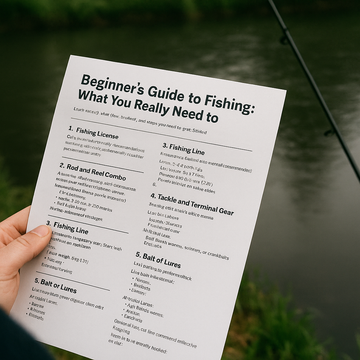Introduction
In the whirlwind of modern life in 2025, we often find ourselves seeking deeper meaning and connection amid the chaos. With technological advancements and fast-paced lifestyles, the quest for balance and fulfillment has never been more critical. Ancient wisdom, rooted in the experiences and philosophies of our ancestors, offers timeless lessons that can guide us toward a more harmonious existence. This article delves deeply into these teachings and how they can be applied to enhance our daily lives.
The Relevance of Ancient Wisdom
As we continue to advance, the teachings of ancient civilizations like the Greeks, Egyptians, Chinese, and Indigenous cultures remain relevant. They provide insights into human behavior, societal structures, and the natural world. Consider the following reasons why ancient wisdom is essential for modern living:
- Timeless Truths: The fundamental truths about human nature and existence have not changed. Ancient texts and teachings often highlight universal themes such as love, compassion, and the pursuit of knowledge.
- Holistic Perspectives: Many ancient philosophies offer a holistic view of life, emphasizing the interconnectedness of mind, body, and spirit. This approach is increasingly recognized in modern wellness practices.
- Resilience: Historical struggles and triumphs of ancient societies teach us about resilience and the human spirit’s capacity to overcome adversity.
Timeless Lessons for Modern Living
Here are several timeless lessons drawn from ancient wisdom that can be effectively integrated into our modern lifestyles:
- Embrace Simplicity: The ancient principle of simplicity teaches us to declutter our lives—physically, mentally, and emotionally. By focusing on what truly matters, we can reduce stress and enhance our sense of fulfillment. This idea is echoed in the minimalist movement that encourages individuals to let go of excess and prioritize quality over quantity.
- Practice Gratitude: Many ancient cultures practiced gratitude as a daily ritual. The Romans, for example, would often express thanks for their blessings. By acknowledging and appreciating the positive aspects of our lives, we cultivate a more optimistic mindset. Research shows that practicing gratitude can improve mental health and overall well-being.
- Seek Knowledge and Wisdom: Lifelong learning was a cornerstone of ancient civilizations. The Greeks revered philosophers like Socrates and Plato, who dedicated their lives to the pursuit of knowledge. In 2025, we can continue this tradition by exploring new ideas, philosophies, and skills that enrich our lives. Engaging in continuous education, reading, and attending workshops can foster personal growth.
- Connect with Nature: Ancient societies had a profound connection with the natural world. The Native Americans, for instance, viewed nature as a sacred entity. Spending time in nature not only restores our mental health but also reminds us of our place within the larger ecosystem. Regularly disconnecting from technology to immerse ourselves in natural surroundings can be rejuvenating.
- Foster Community and Connection: Many ancient cultures thrived on strong communal bonds. The importance of community is highlighted in Biblical teachings and Indigenous practices. In today's world, fostering connections with family, friends, and neighbors enhances our support systems and enriches our lives.
- Practice Mindfulness: Inspired by Eastern philosophies, mindfulness encourages individuals to be present in the moment, reducing anxiety and enhancing overall happiness. Ancient meditation practices, like those from Buddhism, can be integrated into our daily routines to promote mental clarity and emotional stability.
- Balance: Many ancient cultures emphasized the need for balance in life, whether between work and leisure, or physical and spiritual health. The concept of Yin and Yang in Chinese philosophy illustrates the importance of duality and balance in all aspects of life.
Implementing Ancient Wisdom Today
Integrating these lessons into your daily routine can be transformative. Here are some practical steps:
- Set aside time for mindfulness practices: Consider starting your day with meditation or yoga to center your thoughts and create a calm atmosphere for the day ahead.
- Engage in community activities: Join local groups or clubs that align with your interests. Volunteering can also strengthen community ties and provide a sense of purpose.
- Maintain a gratitude journal: Dedicate a few minutes each day to write down things you are thankful for. This practice can shift your focus from negativity to positivity, fostering a grateful mindset.
- Explore local nature trails or parks: Make it a habit to spend time outdoors, whether it’s hiking, walking, or simply sitting in nature. This connection can enhance your mental and physical health.
- Encourage open conversations: Share your thoughts and feelings with loved ones. Create a culture of openness and support within your community to strengthen your bonds.
- Adopt a holistic approach to health: Incorporate practices that nourish your body, mind, and spirit. Consider yoga, meditation, balanced nutrition, and regular physical activity as part of your lifestyle.
Case Studies: Ancient Wisdom in Action
Several contemporary figures and organizations have successfully integrated ancient wisdom into their practices:
- Thich Nhat Hanh: The renowned Zen master has popularized mindfulness and meditation in the Western world, emphasizing the need for presence in our daily lives.
- Community Gardens: Inspired by ancient agricultural practices, community gardens across cities allow residents to grow food together, fostering community spirit and connection to nature.
- Wellness Retreats: Many modern wellness retreats incorporate ancient healing practices, such as Ayurveda and traditional Chinese medicine, promoting a holistic approach to health.
Challenges in Adopting Ancient Wisdom
While the teachings of ancient wisdom are valuable, there are challenges in adopting these principles in our modern lives:
- Fast-Paced Lifestyle: The relentless pace of modern life can make it difficult to slow down and practice mindfulness or reflection.
- Technological Distractions: The prevalence of technology can hinder our ability to connect with nature and foster genuine relationships.
- Societal Pressure: The pressure to conform to societal norms can lead to neglecting self-care and personal growth.
Conclusion
As we move further into 2025, the need for grounding wisdom becomes more apparent. By unlocking the teachings of ancient cultures, we can navigate our modern lives with greater clarity, purpose, and joy. Embrace these timeless lessons and witness the profound impact they can have on your life. In a world that often feels disconnected and overwhelming, ancient wisdom serves as a beacon of light, guiding us toward a more balanced and fulfilling life.










